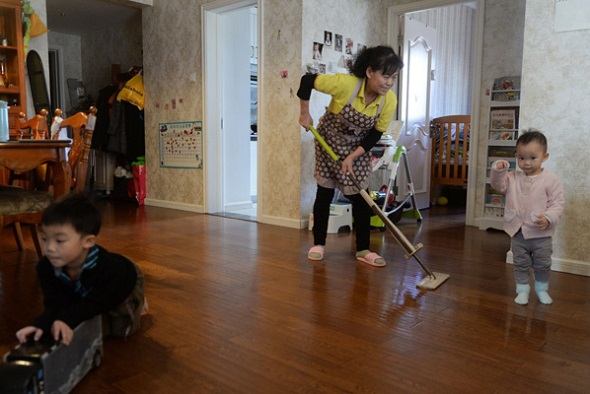Taking Initiative
Date Posted: 19/08/2020

At times, having a helper can be a little challenging. Especially if you are out most of the time, and you need her to take her initiative.
You can see how hardworking and committed she is on all her tasks, but you want to be able to trust her to do the jobs without having to leave a long and detailed list.
Instructing her all the time may be resulting in her lack of independence. This can be frustrating, especially if it has been happening for a long time now. It’s a good idea to speak as soon as possible, so she doesn’t rely on your instruction for too long.
Employers are looking for a helper who knows to take the initiative and work independently without supervision, especially if they’ve been hired for over six months. It is best to discuss her initiative during your interview with her. Ask her previous employers for a reference, too, to evaluate her performance.
To assess your helper’s autonomy, you can check how active she is in her roles. Does she take the initiative when cleaning? How about cooking? There is an action plan for each situation, so here’s a list that can help you appraise her performance.

- Give her ample time to adjust to household dynamics. Her first week may look like she needs to depend on you when it comes to instructions since she’s still learning the family’s preferences.
- Try to see how the helper will find the right balance when it comes to taking her initiative based on the expectations and the training. For example, she may be good at cooking juicy steaks, but your family prefers to eat vegetarian dishes. The helper will most likely need time to make a dish that suits the family’s taste buds. You can give her access to cookbooks or provide the recipes.
- Avoid micromanaging your domestic helper. Admittedly, this is normal during her work with you, but give her enough space. She might feel uncomfortable whenever you always try to notice every single thing she does.
- Communicate with your helper regarding your instructions. Understandably, you want her to work independently, but you still need to tell her some reminders. Be specific if you have family preferences that she needs to follow and don’t expect her to know all of it immediately.
- Be clear with what you want, and then you can give her less specific tasks where she can decide by herself.
- You can give her a schedule of daily and weekly tasks where priorities are marked. Suppose you have preferences like washing your bedding weekly. In that case, towels should be cleaned every four days and communicate it with her.
- Instruct her that she can create her schedule and make necessary adjustments if needed. Making her own plan might work better for her and will help her be more efficient with all her tasks.
- Accept that she’s not perfect at everything. Nobody is. If she has been performing very well, but it deteriorated, talk to her.
Through the things listed here, you’ll be able to train your helper and empower her to take the initiative. If you have items that need to be clarified, do it. Sometimes, a lot of adjustments need to take place in a new working environment. Give her a chance because you might discover that she really has great potential.
- My Domestic Helper Doesn’t Take Initiative, What Should I Do?
- Characters
- It’s My First Time Employing A Domestic Helper, What Should I Do?


